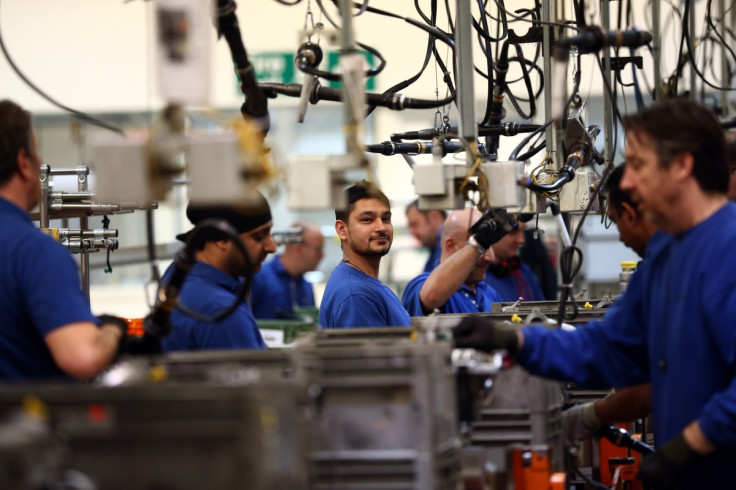As interest rates remain low, Britain needs to address the productivity gap
A decade on from the global financial crisis, the country's productivity trends are still alarming.

Imagine you are an ageing company with a glorious past. A proud past of making things the whole world wants to buy.
You've been around a long time so you have a lot of pensioners, but the tiny interest you now get on savings means you are having to pay their pensions from current earnings. And your profits have been falling so pay has hardly gone up and the workers are complaining.
Your profits have fallen because your productivity is below your competitors after you stopped investing in new equipment or staff training. And you are now starting to lose key staff because you can't pay the market rate for wages. Welcome to 'UK PLC'.
A decade on from the collapse of Northern Rock which heralded the financial crisis in the UK, the productivity trends are still alarming.
In fact there is no escaping it. Even looking over two centuries of data, our productivity is at a historic low. In terms of output per worker, productivity growth is at the lowest level since the 1920s. If you divide gross domestic product (GDP) by hours worked, Britain's economy has now experienced its least productive decade since we were at war with Napoleon!
If you are leading a business, you know you will have to make some hard choices and put your money in things that can change the company's market position. You will need a plan.
UK PLC has an amazing, world-class research division – it accounts for 15.9% of the highest-cited research papers. But getting the production and research and development (R&D) people to work together by translating innovations from the lab into the production line has been difficult. So what do you do?
This is why there is a case for an Industrial Strategy for UK PLC. But does everyone in every department see the case for it? And just what should that strategy involve?
To be successful, we have to be honest about our strengths and weaknesses. We will need to make some tough choices, because there is not a market for every product or service.
And we can't do get hold of the best joint teams of thinkers, makers and innovators without raising eyebrows and upsetting convention.
Our government needs to give these teams tough targets to make genuine production prototypes of big-ticket items like planes, trains, modular reactors or new forms of housing, and then set them to work with the resources to do what we asked. When we see what these talented groups have achieved, we should then invest in the best to make at scale.
What else does a proper game-changing industrial strategy need? It needs cash. There will be no money for the ageing workers if we don't act now.

Pensioners cannot be put to work but their savings can. As interest rates remain at a low level, we should raise capital to power the future by selling bonds to the pensioners and use the cash to build innovative factories for the new products.
If this doesn't generate enough cash, why not do what a company would do as it restructured for the future: go to your Bank Manager – HM Treasury, in this case – with a business plan and ask for a loan to build the new plant, demonstrating the prototype and global market for the new products we can make to sell to the world.
It sounds impossible. Let's hope not. Our global competitors – China and Germany – are rising and only a fool would believe that Brexit is going to make things easier, at least in the short term.
If UK PLC wants to be a player in the future and not a nostalgic name on the global high-street of the past, we need a decisive commitment to understand what the world wants, what we can make and to ensure we can deliver.
Whether it realises it or not, the future of our whole country – and most of all our children – depends on us facing up to this challenge and putting our resources and talent into changing direction.
Professor Sir Keith Burnett CBE is the Vice-Chancellor of the University of Sheffield and President of the UK Science Council.
© Copyright IBTimes 2025. All rights reserved.






















